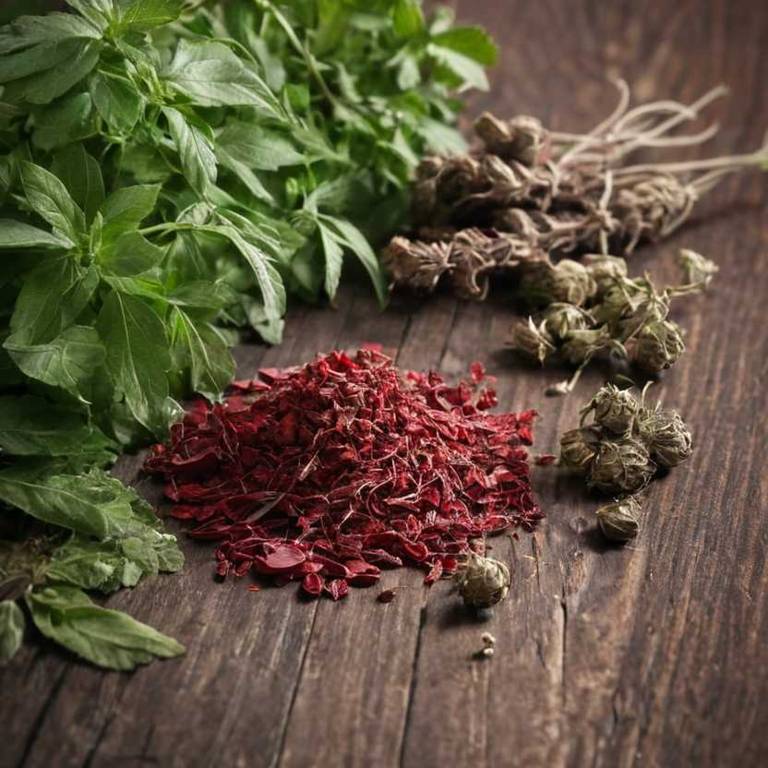By Leen Randell
Updated: Jul 17, 2024
10 Medicinal Preparations Of Ulmus Rubra (Slippery Elm)

Ulmus rubra has several medicinal preparations, such as teas, capsules, and tinctures.
These preparations are useful for soothing digestive issues, including irritable bowel syndrome and gastroesophageal reflux disease. They can also help to reduce inflammation, ease coughs and sore throats, and support the mucous membranes in the body.
Additionally, slippery elm preparations have been used to aid in wound healing and skin irritations.
This article explains in details the 10 best medicinal preparations of Ulmus rubra.
1. Teas
Ulmus rubra teas is used to alleviate a range of health issues.
Its soothing properties make it an effective remedy for digestive problems such as irritable bowel syndrome (IBS), gastritis, and constipation. Additionally, the tea has been traditionally used to reduce inflammation and ease symptoms of respiratory conditions like bronchitis, coughs, and sore throats.
Its anti-inflammatory compounds also help to soothe skin irritations and minor wounds.
2. Decoctions
Ulmus rubra decoctions is used to alleviate a range of health issues.
The mucilage-rich extract has anti-inflammatory properties that soothe digestive problems such as irritable bowel syndrome (IBS), inflammatory bowel disease (IBD), and gastroesophageal reflux disease (GERD). Additionally, it helps to calm respiratory issues like bronchitis, coughs, and sore throats, making it a natural remedy for respiratory health.
Its demulcent properties also make it an effective treatment for skin irritations and wound care.
3. Tinctures
Ulmus rubra tinctures is used to alleviate various digestive issues, such as constipation, diarrhea, and irritable bowel syndrome (IBS).
The tincture's mucilaginous properties help soothe and protect the gut lining, reducing inflammation and discomfort.
It is also used to treat respiratory conditions like bronchitis and coughs, as well as skin irritations and wounds, due to its antibacterial and anti-inflammatory properties.
4. Syrups
Ulmus rubra syrups is used to alleviate digestive issues such as constipation, irritable bowel syndrome, and gastroesophageal reflux disease.
The mucilages present in the syrup soothe and protect the mucous membranes in the stomach and intestines, reducing inflammation and discomfort.
Additionally, it is used to treat respiratory issues like bronchitis, coughs, and sore throats by coating and soothing irritated mucous membranes in the throat and lungs.
5. Salves
Ulmus rubra salves is used to soothe and calm various skin issues such as eczema, acne, and dermatitis.
The salve's anti-inflammatory properties help reduce redness and irritation, promoting faster healing and relief from discomfort.
Additionally, it can be applied topically to alleviate symptoms of mouth sores, gum inflammation, and digestive issues like irritable bowel syndrome (IBS), providing natural relief and comfort.
6. Ointments
Ulmus rubra ointments is used to treat a variety of health issues.
The mucilages found in the plant's inner bark soothe and calm digestive issues such as irritable bowel syndrome (IBS), inflammatory bowel disease (IBD), and gastritis.
Additionally, slippery elm ointments can be used topically to alleviate skin irritations, wounds, and burns due to its anti-inflammatory and antimicrobial properties, making it a natural remedy for promoting wound healing and reducing scarring.
7. Creams
Ulmus rubra creams is used to soothe and calm irritated skin, reducing inflammation and redness.
It's often applied topically to treat eczema, acne, and rosacea, while its anti-inflammatory properties help alleviate symptoms of arthritis, gout, and other joint pain conditions.
Additionally, the cream can be used as a demulcent to protect and moisturize mucous membranes in the digestive tract, relieving heartburn, gastritis, and other gastrointestinal issues.
8. Gels
Ulmus rubra gels is used to alleviate various health issues.
The gel's mucilaginous properties make it an effective remedy for soothing digestive issues such as irritable bowel syndrome (IBS), inflammatory bowel disease (IBD), and gastroesophageal reflux disease (GERD). It can also be used to calm skin irritations, wounds, and burns, while its anti-inflammatory properties help to reduce inflammation and pain.
Additionally, the gel may be beneficial for respiratory issues like bronchitis and asthma by providing relief from coughing and congestion.
9. Liniments
Ulmus rubra liniments is used to alleviate various health issues.
The anti-inflammatory and soothing properties of slippery elm make it an effective treatment for digestive problems such as irritable bowel syndrome (IBS), constipation, and ulcers. It can also be applied topically to relieve skin irritations, wounds, and burns, promoting healing and reducing inflammation.
Additionally, it is often used in herbal remedies to treat respiratory issues like bronchitis and asthma.
10. Poultices
Ulmus rubra poultices is used to alleviate various health concerns.
It has been traditionally employed to soothe skin irritations, burns, and wounds by promoting the healing process and reducing inflammation. The poultice is also effective in treating respiratory issues such as bronchitis, asthma, and coughs due to its expectorant properties.
Additionally, it can be used to calm digestive troubles like diarrhea and constipation.